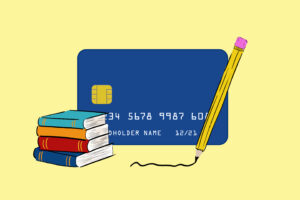Financial Inclusion in the Digital Age
Understanding Financial Inclusion Today
Financial inclusion has become one of the most important discussions in the digital economy. It is a vital aspect of the economy because having the ability to manage money, save, and sort out finances should be available to everyone, no matter their financial situation or cultural background. Financial inclusion is all about making financial products and services accessible to every individual, regardless of their income, location, or social background. It’s an effort to include everyone because, in the past, millions of people were excluded from the financial system. These people who were excluded lacked access to banks, credit, or even basic identification documents. Financial inclusion prevents this from happening and gives everyone access to money management and the basic necessities for finances. This is vital today because economies are always rapidly changing, and digital technology is making finances easier and more accessible.
The growth of mobile banking, online wallets, and blockchain-based systems has given individuals more ways to participate in the global economy. Instead of being limited by physical branches or lengthy paperwork just to have access to their money and manage it, people can now open accounts, transfer funds, and receive payments by only using their mobile phones. This vital change is helping to make life much easier for those who are already in the financial system. It is also transforming the way in which people can access the financial system because it extends opportunities to communities that were previously left out.
The Role of Technology in Breaking Barriers
The rise of digital devices has reduced barriers that once kept many people from accessing financial services. With a click of a button, you can gain the information needed to set up accounts, transfer money, manage bills, and so much more, as well as have support from team members on hand when you need it. This has included more rural populations where traveling to the nearest bank may take them hours. Mobile banking provides instant access with a touch of a button. For people who work away, sending money home no longer means expensive wire transfers or unreliable middlemen. And for small business owners, digital payment solutions open doors to global marketplaces that were once unreachable.
On top of this, these technologies encourage more people to save, borrow, and invest safely because it is easier to do these things. Plus, every banking app and money app has plenty of expert advice to give people the knowledge about financial aspects they may have never known about. This gives them the confidence to rely on the information and make better money choices to help them build wealth. They also have staff support on hand to help them further, which gives them more confidence and encouragement. Microloans offered through fintech apps have helped entrepreneurs in developing countries launch businesses, while secure online wallets allow individuals to keep their earnings safe from theft or instability. This type of financial access leads to stronger local economies, greater independence, and improved quality of life.
Financial Inclusion and Social Impact
Having proper access to finance isn’t just focused on economic growth. It’s also focused on empowerment and freedom. If everyone can manage their own money securely, they can gain the freedom to do what they want and achieve personal goals. They also get a sense of control over their futures. They can invest in their children’s education, afford healthcare, and plan for emergencies.
Planning for life and working to achieve goals aren’t the only things financial inclusion can provide people. It can also have a significant social impact as it allows us to help others through sharing our wealth and charitable giving. In communities around the world, moments of generosity are often tied to cultural and religious observances. On significant dates, such as 12 Rabi ul Awwal, when acts of giving are emphasized, the availability of digital tools allows more people to participate in charitable contributions regardless of where they are located. By making donations simple and accessible, digital platforms extend the impact of these traditions to a global scale.
Challenges That Remain
Even though financial inclusion has progressed massively over the years, and more people have access to manage their money, there are still challenges that prevent the economy from reaching full financial inclusion. Although the financial world has been digitalized now, there is still a divide that comes with the digital world. Some regions lack internet access to use devices, people don’t have reliable electricity, or some don’t have affordable smartphones to invest in. Due to this, when the technology is available to these people, some of them still remain hesitant to adapt to it. This is because they don’t have the confidence to navigate the digital world and lack digital literacy. Plus, there are many fears and concerns about security and privacy.
Regulatory frameworks also play a crucial role. Governments and financial institutions must ensure that regulations balance innovation with consumer protection. Without proper oversight, vulnerable populations could fall prey to predatory lending, hidden fees, or fraudulent platforms. Building trust is just as important as providing access, which means fintech companies must prioritize transparency and user education.
The Path Forward
The transformation to a more digital world has proven that financial inclusion is not only possible but achievable for the whole world. However, the journey requires collaboration. Governments, fintech innovators, and non-profit organizations must continue to work together to close the gaps. This includes investing in infrastructure, promoting digital literacy, and creating systems that are affordable and secure for everyone.
Ultimately, financial inclusion in the digital age isn’t just about technology; it is about equity. By ensuring that all people can participate in the financial system, societies move closer to eliminating poverty and creating equal opportunities.







































No comments